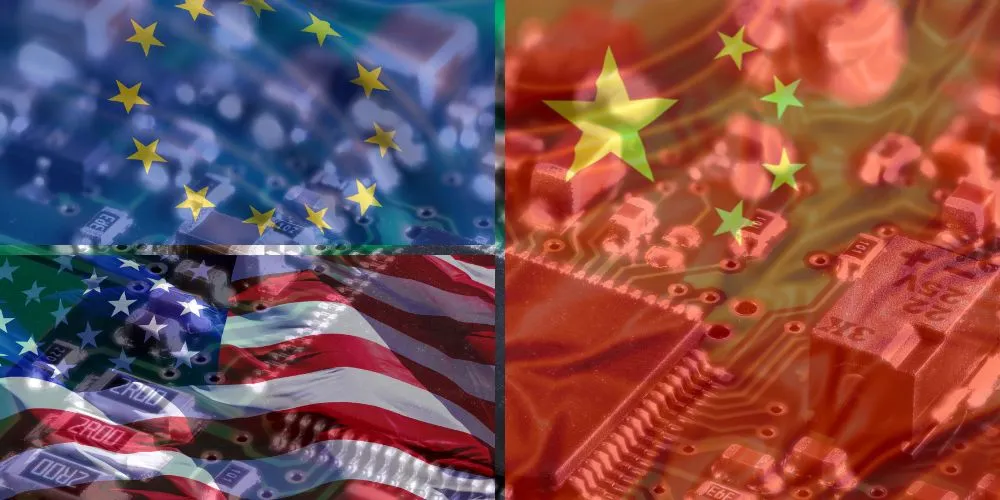Key Points:
- The U.S. and EU will extend cooperation for three years to identify disruptions in the semiconductor sector, particularly focusing on legacy chips from China.
- China’s dominance in producing legacy chips raises concerns about market distortions due to substantial government subsidies.
- The U.S. Commerce Department has initiated a survey to assess market distortions, with plans for a similar exercise by the EU.
- Both entities will collaborate to find alternatives to PFAS, environmentally harmful chemicals used in chip manufacturing.
The United States and the European Union have pledged to extend their collaboration for an additional three years to identify disruptions within the semiconductor sector. The focus will be on mainstream “legacy” chips originating from China. Following a two-day Trade and Technology Council session, the two parties issued a 12-page joint statement outlining the outcomes of their discussions.
The statement emphasized the importance of sharing market intelligence concerning “non-market” policies and practices prevalent in China and coordinating actions to address distortions in the global supply chain. European Commission Vice President Margrethe Vestager, responsible for EU technology policy, highlighted that the EU and U.S. were advancing their efforts concerning legacy semiconductors.
U.S. Commerce Secretary Gina Raimondo emphasized China’s dominance in producing approximately 60% of legacy chips, commonly found in various consumer electronics such as cars, household appliances, and medical devices. Raimondo expressed concerns about the Chinese government’s significant subsidization of this industry, potentially leading to market distortions.
To address these challenges, the U.S. Commerce Department has initiated a survey to assess market distortions, with plans for a similar exercise by the EU in the near future. Both entities will collaborate and share their findings.
Additionally, the U.S. and EU have committed to collaborating on research to find alternatives to per- and polyfluoroalkyl substances (PFAS) used in chip manufacturing. These chemicals, known as “forever chemicals,” pose environmental and health risks due to their persistence and potential toxicity.



